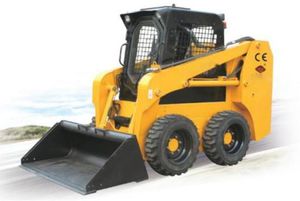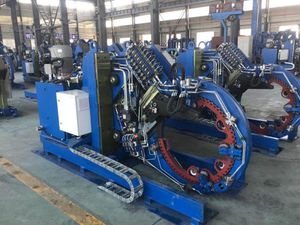
- Building - Construction
- Construction and Mining Equipment
- Hammer crusher
- Shanghai Electric Heavy Machinery Co., Ltd.
Hammer crusher stationary
Add to favorites
Compare this product
Characteristics
- Technology
- hammer
- Mobility
- stationary
Description
List of 450 heavy scrap crusher
1.Product principle and Application
The crushing production line uses the principle of hammering. Under the drive of a high-speed and high-torque motor, the hammers on the host rotor take turns to hit the objects to be crushed in the cavity. Through the space formed between the liner and the hammers, After the crushed object is torn into a crushed object conforming to the specifications, a high-quality crushed material with high purity can be obtained under the action of a magnetic device.
This production line is used to process waste car body, tinplate, household appliances, bicycles, empty cans and other lower scraps to make it into a superior steel making raw material. The machine continuously crushes, removes the coating film, increases the specific gravity of the volume, prevents the electric furnace from exploding, and improves the water output rate under certain conditions.
2.Technical conditions
1.1 (1) Ambient temperature: -20 ℃ -40 ℃
(2) Production staff: 3-5 people
(3) Installation method: According to the installation diagram, the technicians guide the installation
1.2 Power supply
(1) Three-phase four-wire 380V AC (±10%), 50HZ (±2%)
(2) Low-voltage power supply of the equipment: 380v / 50hz;
Working lighting power: 220v / 50hz;
3.Processing object
1. Waste car body (excluding engine, reduction gear box, tire, etc.);
The 450KW crushing line needs to be broken into squares not larger than 800mm * 800mm when crushing colored steel tiles.
2, Tinplate (cans, etc.)
3. Iron sheet for home appliances (excluding motors, compressors, shafts, etc.)
4. ≤6mm light and thin materials and similar domestic waste
Catalogs
No catalogs are available for this product.
See all of Shanghai Electric Heavy Machinery Co., Ltd.‘s catalogsOther Shanghai Electric Heavy Machinery Co., Ltd. products
Metallurgy auxiliary equipment
*Prices are pre-tax. They exclude delivery charges and customs duties and do not include additional charges for installation or activation options. Prices are indicative only and may vary by country, with changes to the cost of raw materials and exchange rates.





